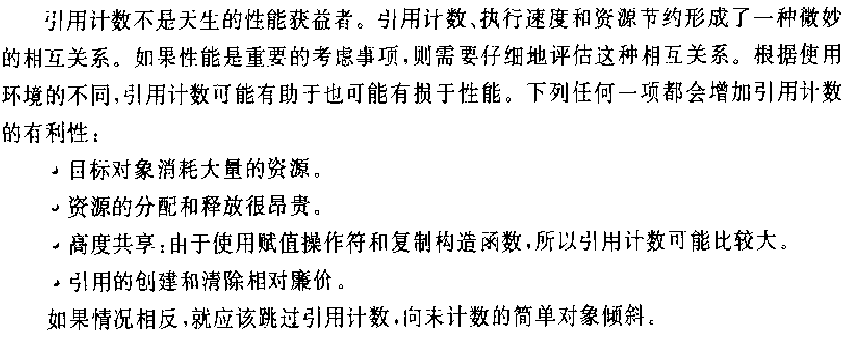读书笔记之:Efficient C++ 提高C++性能的编程技术(2003)[++]
第1章 跟踪范例
第2章 构造函数和析构函数
第3章 虚函数
1. 虚函数造成的性能损失

第4章 返回值优化
任何时候只要跳过了对象的创建和清除,就将会获得性能上的收益。返回值优化RVO(Return Value Optimization)是由编译器实现的优化,它用于加速源代码,是通过对源代码进行转化并消除对象的创建来实现的。
1. 按值返回的构造
下面是Complex类:
class Complex{
friend Complex operator+(const Complex &,const Complex&);
public:
Complex(double r=0.0,double i=0.0):real(r),imag(i){}
Complex(const Complex& c):real(c.real),imag(c.imag){}
Complex& operator=(const Complex& c){
if(this!=&c){
real=c.real;
imag=c.imag;
}
return *this;
}
~Complex(){}
private:
double real;
double imag;
};
Complex operator+(const Complex&a,const Complex& b){
Complex ret;
ret.real=a.real+b.real;
ret.imag=a.imag+b.imag;
return ret;
}
friend Complex operator+(const Complex &,const Complex&);
public:
Complex(double r=0.0,double i=0.0):real(r),imag(i){}
Complex(const Complex& c):real(c.real),imag(c.imag){}
Complex& operator=(const Complex& c){
if(this!=&c){
real=c.real;
imag=c.imag;
}
return *this;
}
~Complex(){}
private:
double real;
double imag;
};
Complex operator+(const Complex&a,const Complex& b){
Complex ret;
ret.real=a.real+b.real;
ret.imag=a.imag+b.imag;
return ret;
}
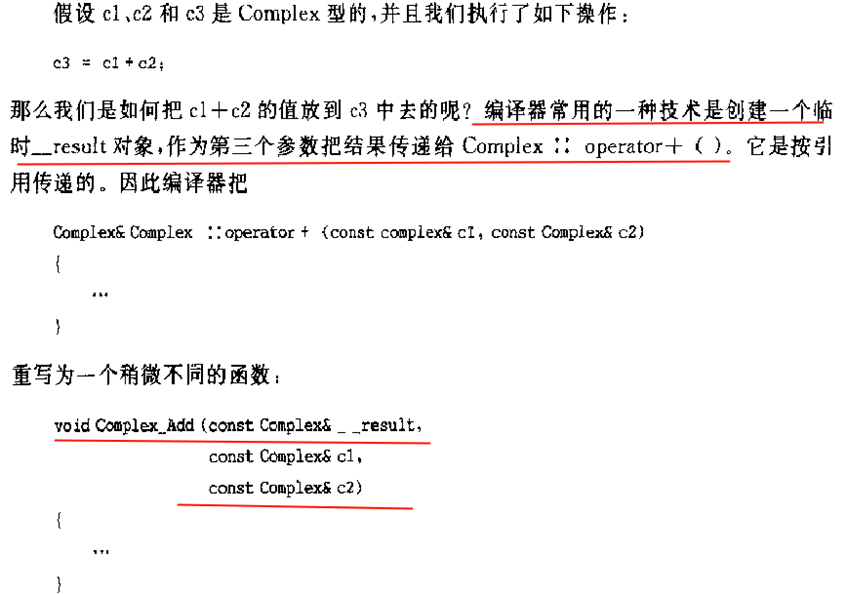
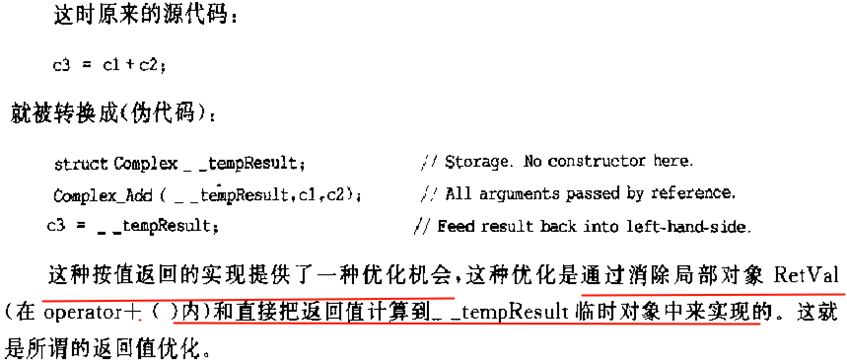
2. 返回值优化
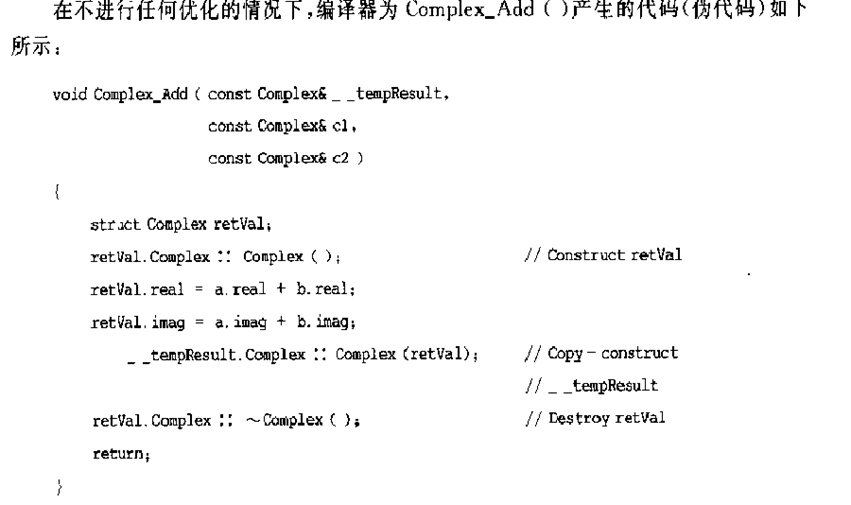
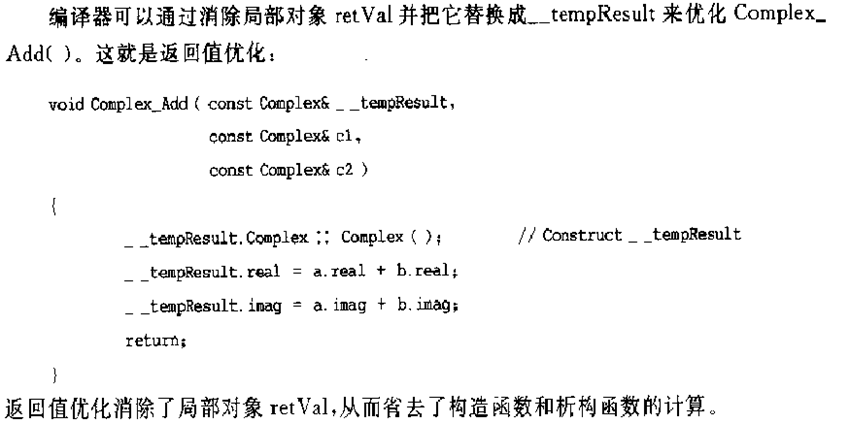
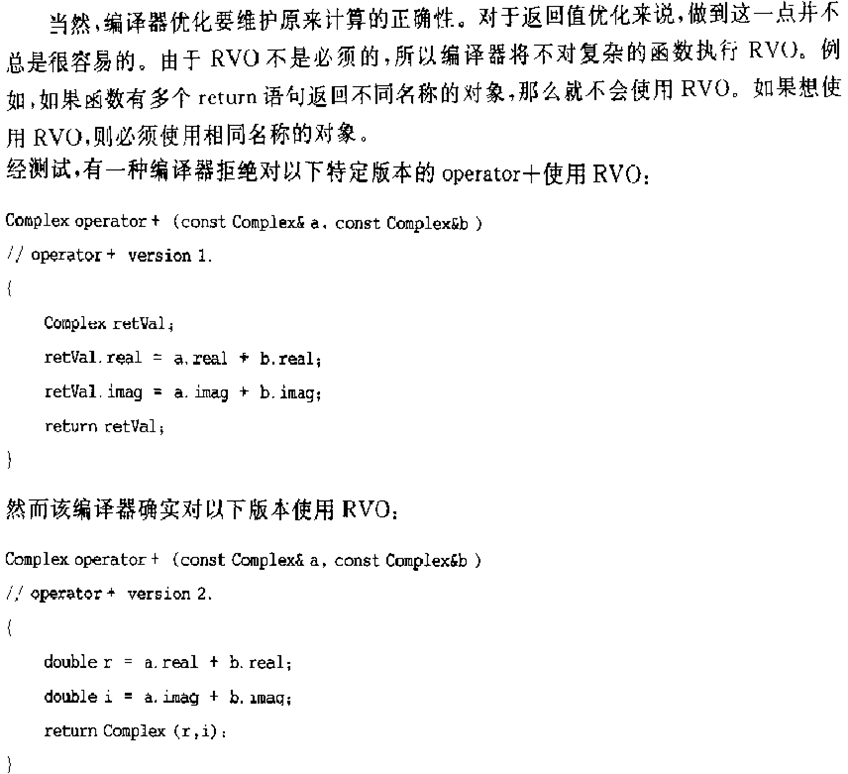
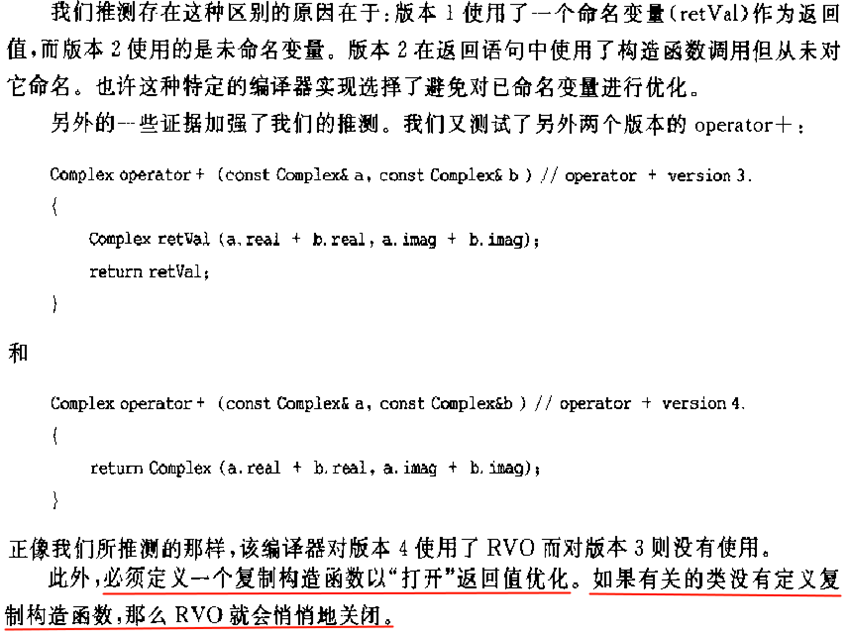
3. 计算性构造函数
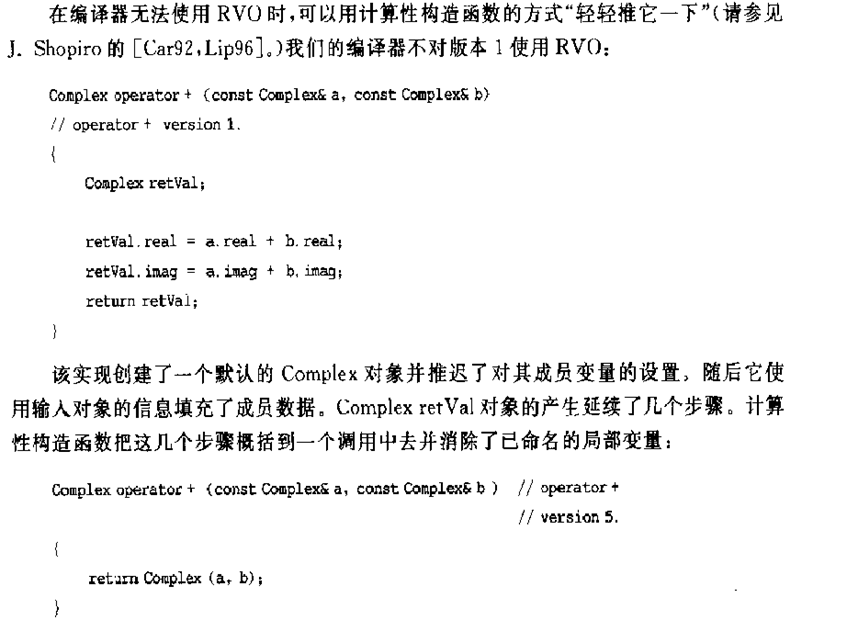
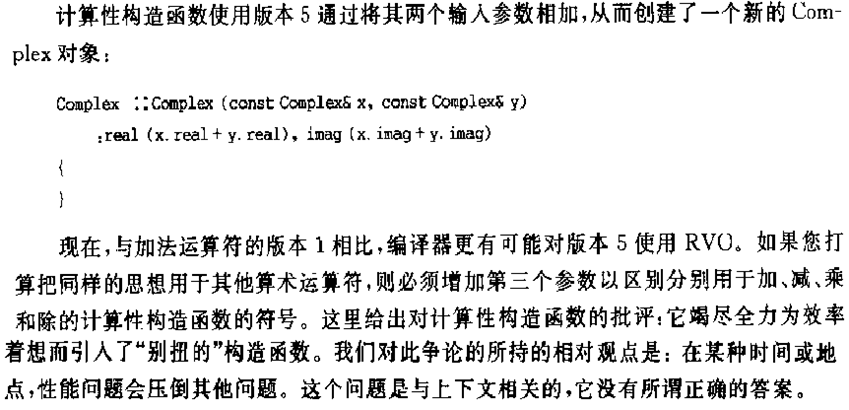
第5章 临时对象
1. 对象的定义
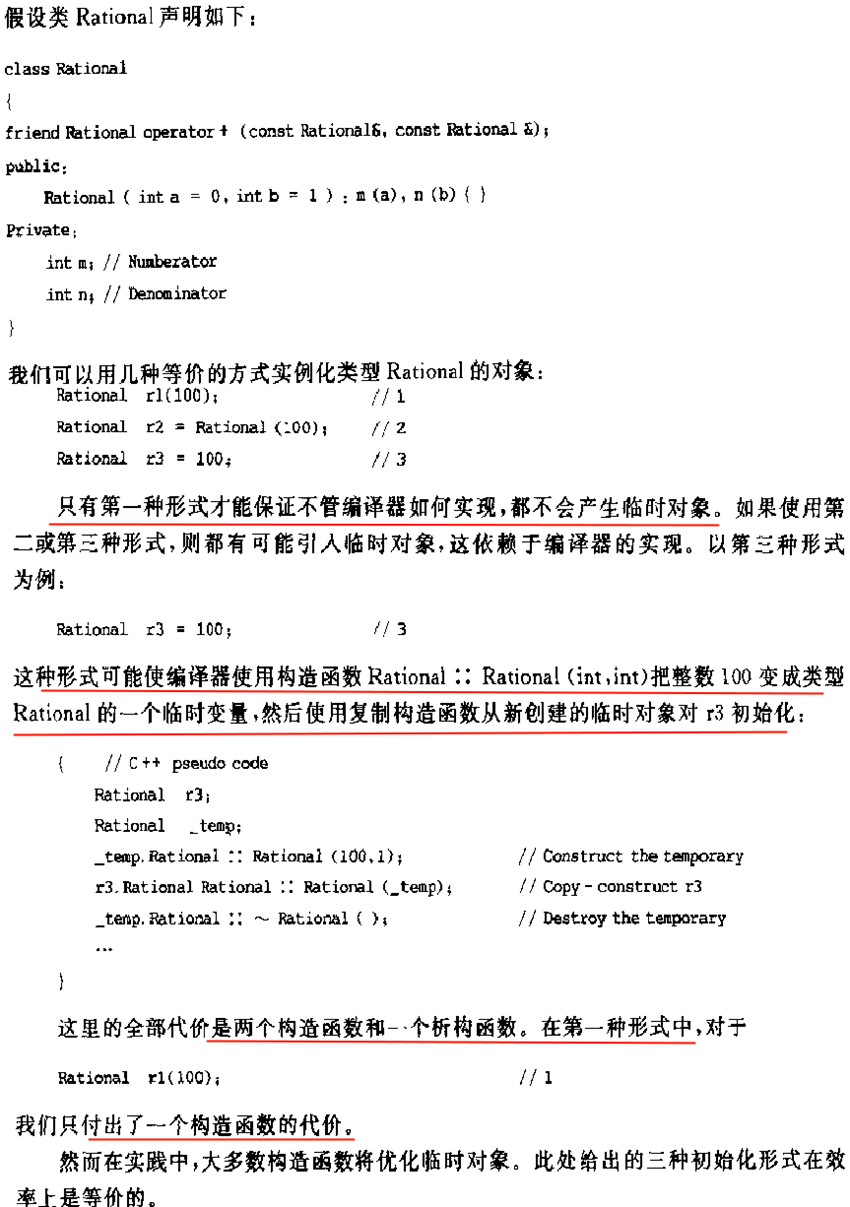
2. 类型不同时的类型转换
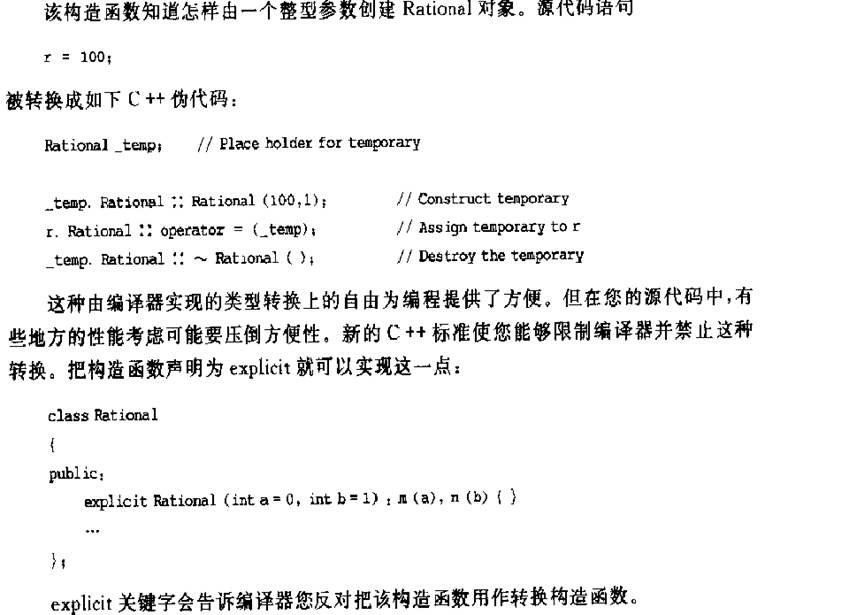

3. 按值传递
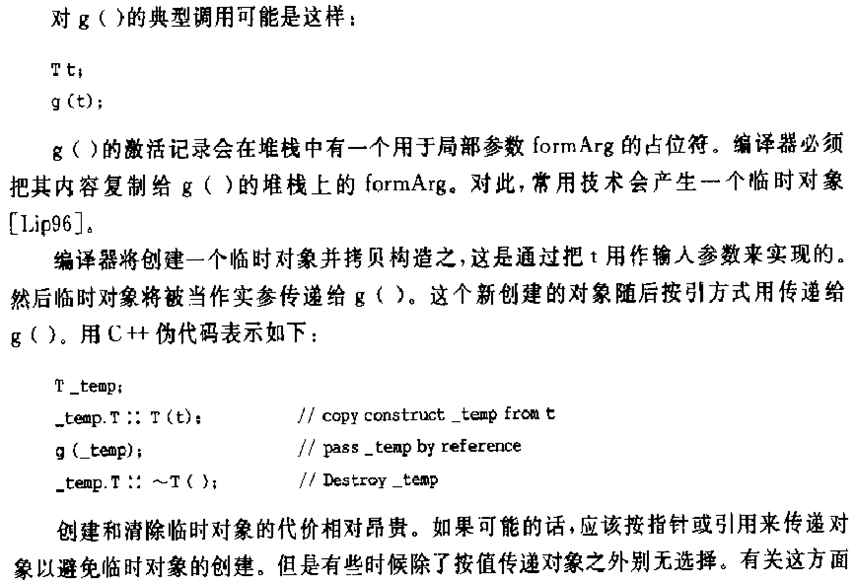

第6章 单线程内存池
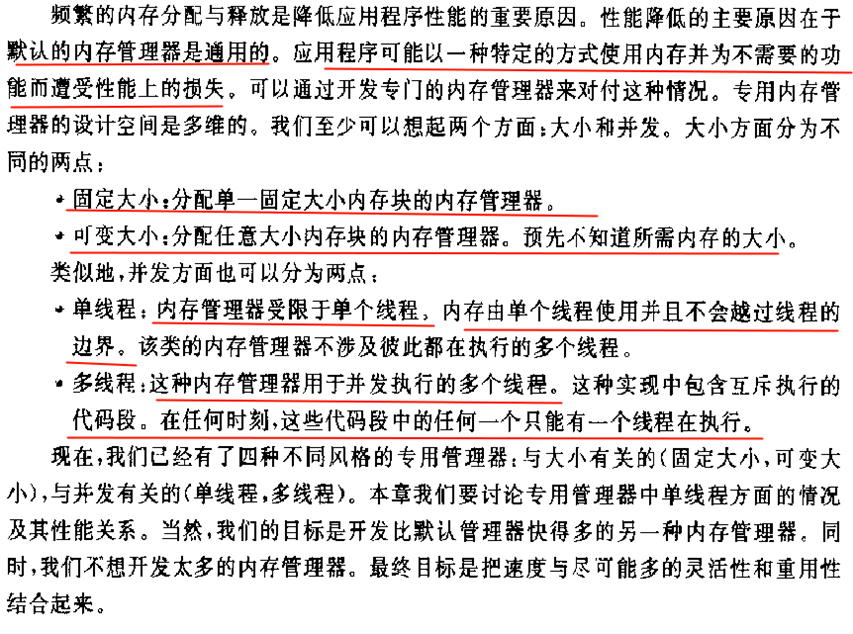

第8章 内联基础
1. 方法调用的代价
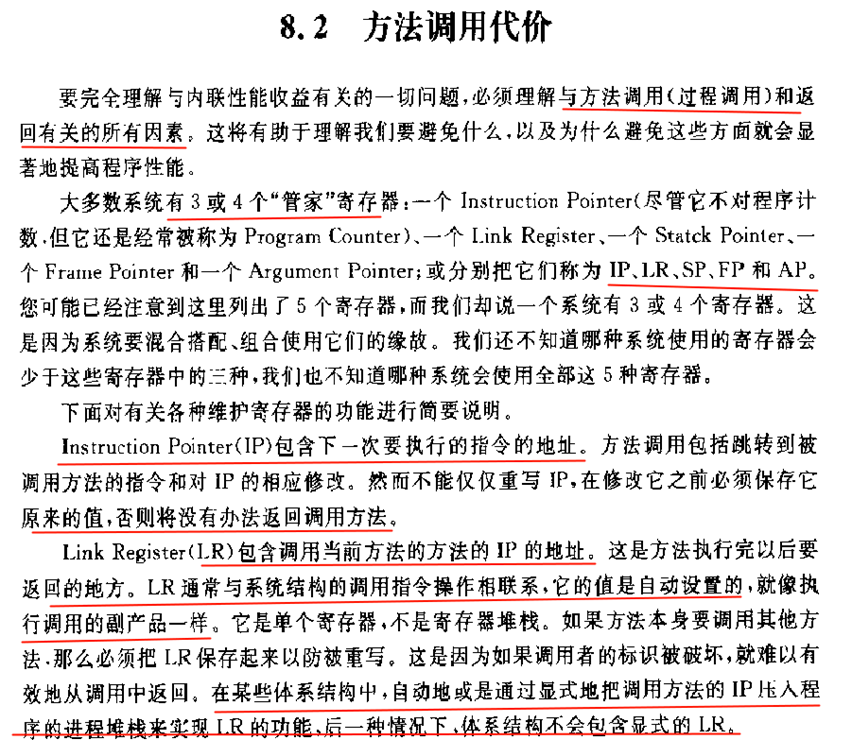
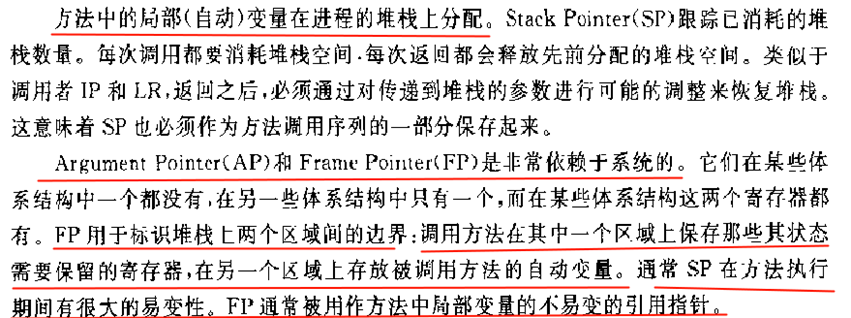
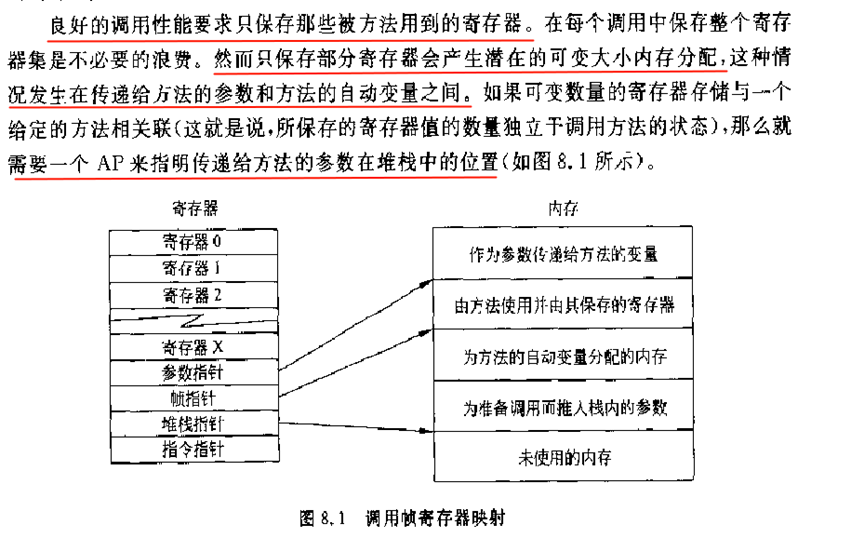
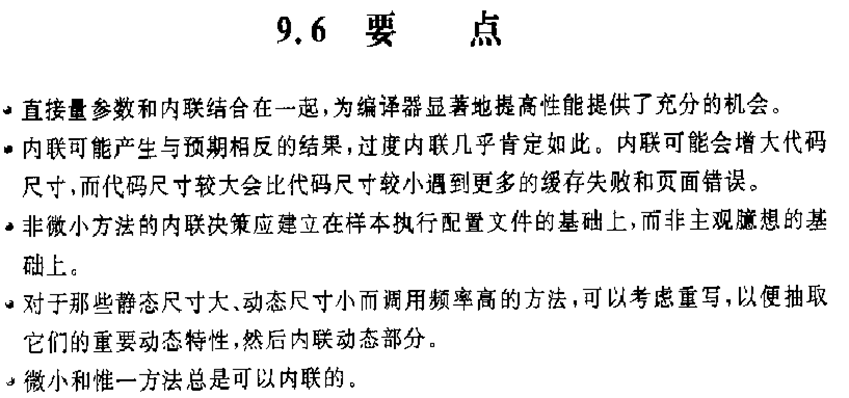
引用计数
